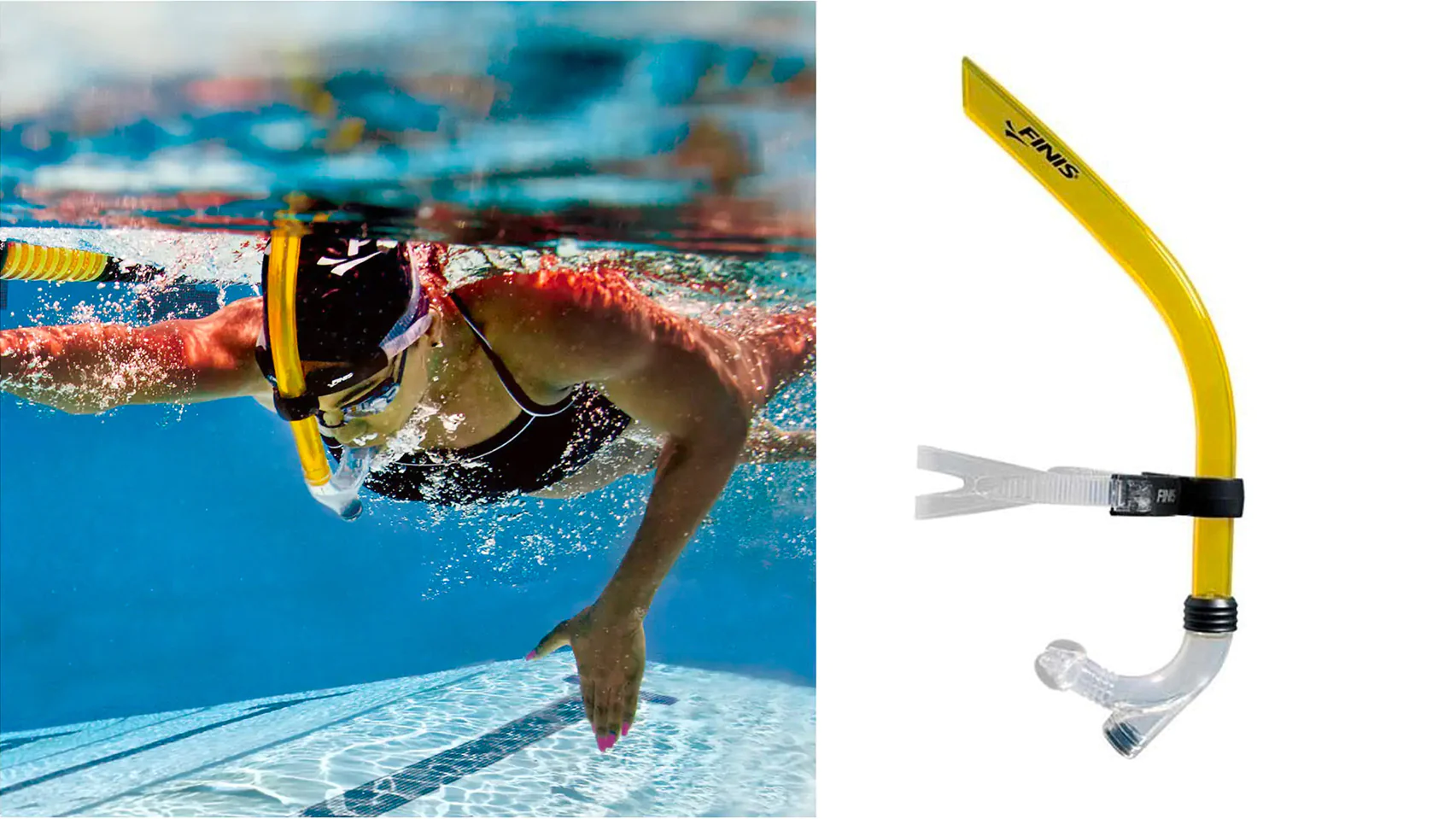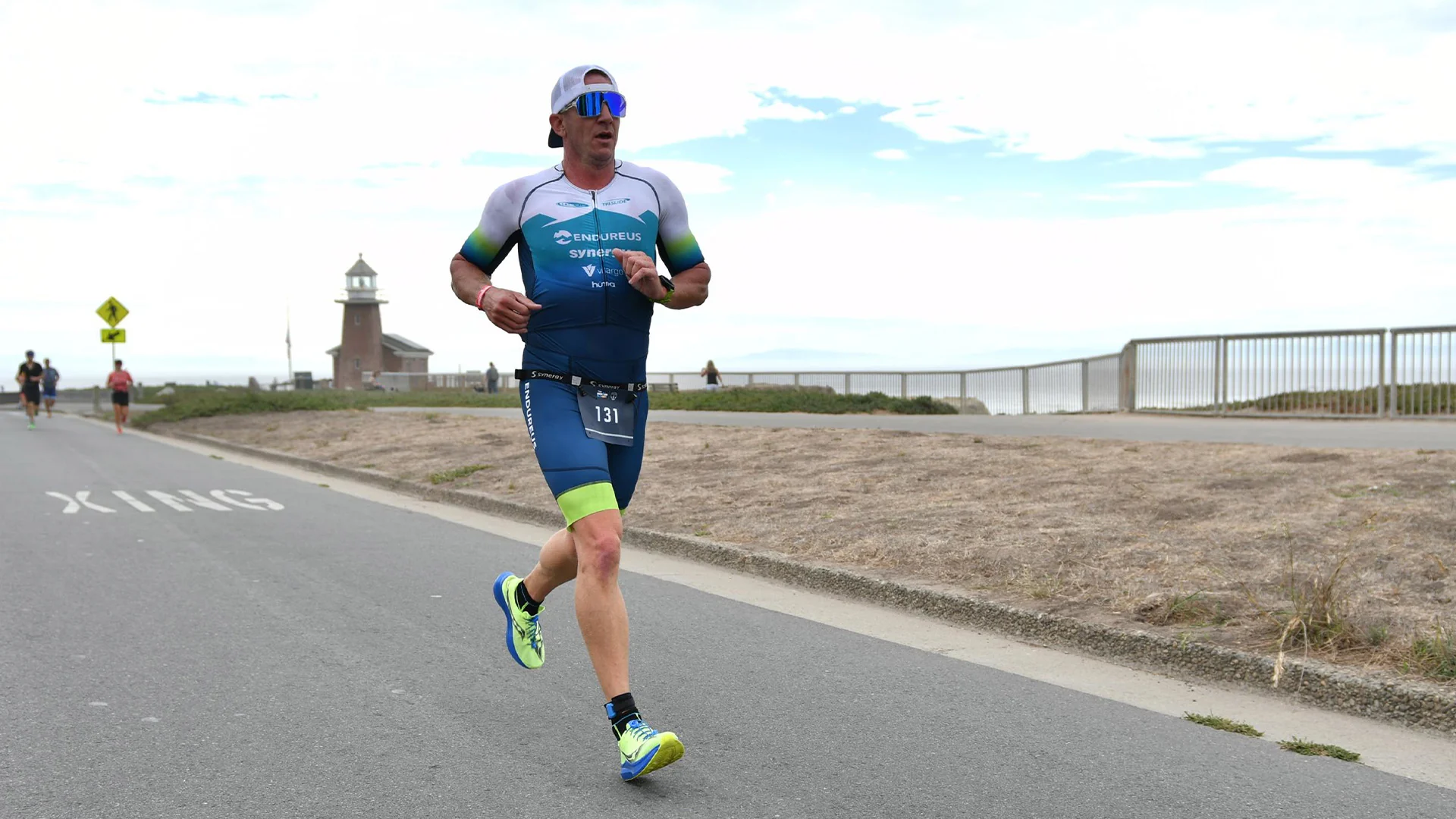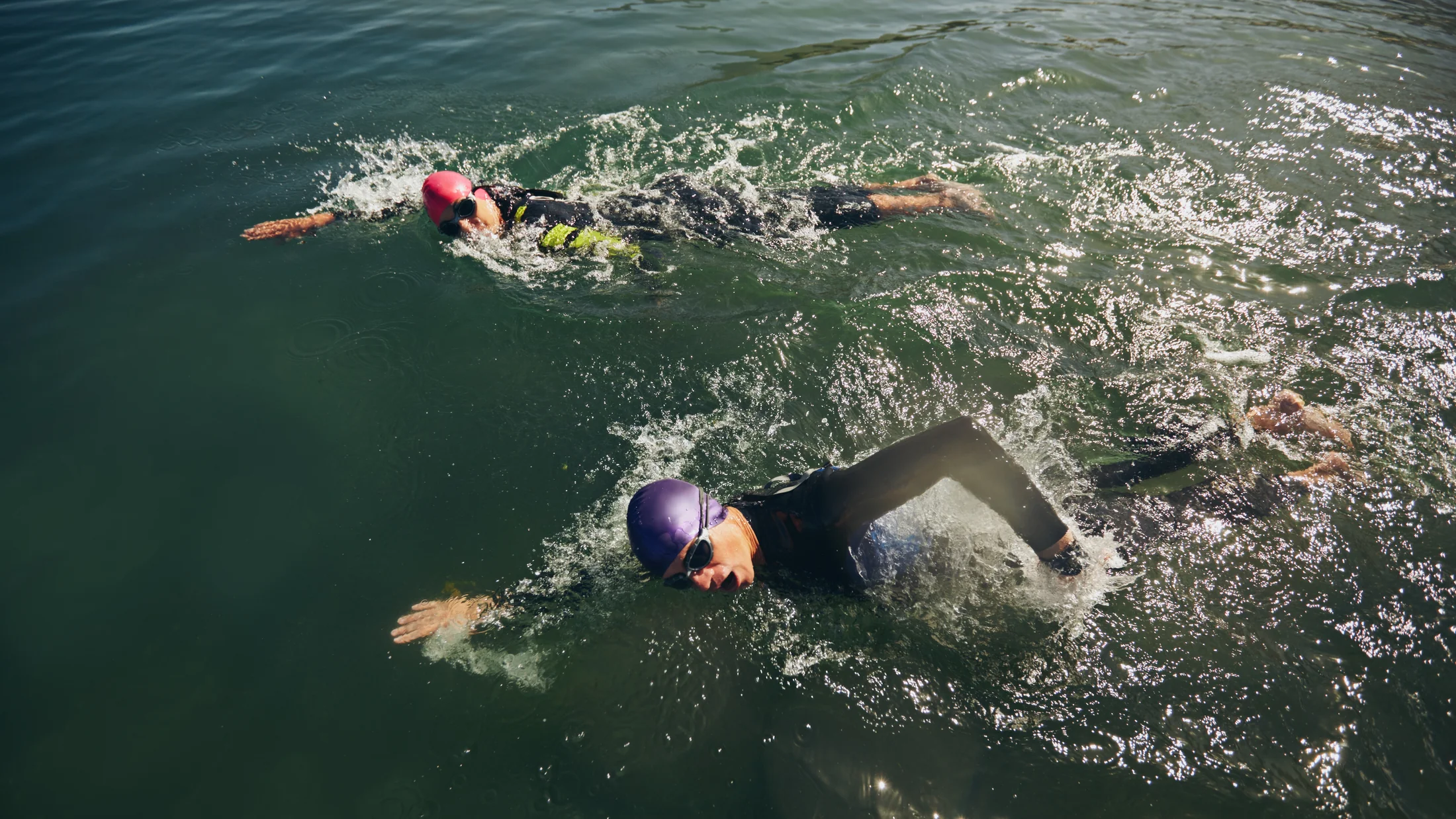Whether there is an advantage for triathletes to swim with or without sleeves in wetsuits is an extensively debated topic. This is a frequently discussed topic amongst Orange County Endurance members on our Discord chat.
While some argue that it is a clear-cut issue, others hold strong opinions to the contrary. There are two main categories of triathlon wetsuits: full-sleeve and sleeveless. A full-sleeve wetsuit covers the arms and extends to the wrists, while a sleeveless suit stops at the shoulders, similar to a tank top. Both styles have full leg coverage and a rear zipper and are generally similar in all other aspects. Deciding which suit style to use may be a straightforward answer, and many triathletes own both types.
Full-sleeved Wetsuits
A full-sleeve wetsuit provides various advantages, including additional warmth, added floatation, increased hydrodynamics, and protection from the elements.
Wearing a wetsuit that covers more body surfaces helps retain more body heat by limiting the amount of cold water flowing over the skin. Eliminating sleeves,
particularly in the armpit area where much of the body’s heat is stored or lost, can significantly impact core temperature, positively or negatively. Additionally, the small amount of water that enters the suit through the neck hole is warmed up by the body, creating a more comfortable experience in cold water.
The extra neoprene in the sleeves also offers additional lift and floatation in the water. Although the sleeves usually have a thinner and more flexible layer of neoprene, they still provide buoyancy to the arms and upper body.
Moreover, a full-sleeve suit enhances the wearer’s hydrodynamics. Similar to how Olympic swimmers wear skin-tight suits or how Spanks provide a smooth silhouette, wetsuit sleeves help keep the arms streamlined for less resistance and more speed through the water. In addition, full sleeves offer extra protection against the elements. Some ocean and lake swims are notorious for jellyfish, lice, or other unpleasant creatures. With a bike and run to follow, shielding as much skin as possible from unwanted stings and irritations can be advantageous.
Sleeved wetsuits advantages:
- Added buoyancy (aids in sighting strokes as well)
- More efficient glide stroke
- The greater surface area with the addition of catch panels
- Increased insulation for colder water swims
Sleeveless Wetsuits
A sleeveless wetsuit offers several advantages, such as better fit, less insulation, and reduced constriction.
In the United States, the temperature cutoff for wetsuits in triathlons is 78 degrees Fahrenheit (25.5 degrees Celsius). Athletes can opt for a sleeveless wetsuit to prevent overheating when the water temperature is higher. The open arms allow for
better cooling and regulation of body temperature while still benefiting from the flotation and speed advantages of the rest of the suit.
Sleeveless wetsuits can be more suitable for triathletes with larger upper bodies, such as those with heavily muscled shoulders and arms. Tight sleeves can restrict the shoulder range of motion, which is crucial for swimming fast. Full suits can also constrict the torso, making breathing difficult for athletes with larger chests. A sleeveless wetsuit offers greater freedom of movement, better fit, and easier breathing during the swim.
Sleeveless wetsuits advantages:
- Greater range of motion
- Less strain on shoulders
- Better feeling of the catch
- Increase in comfort for warmer water
Here are four questions to consider when deciding whether to choose a full-sleeve or sleeveless wetsuit:
- What are the swim conditions like in the races I am participating in?
- What is my body shape and size?
- Do I prioritize speed or comfort while swimming?
- What is my budget for a wetsuit?
In essence, the debate revolves around finding the wetsuit that suits your physique and the water conditions of your race. A sleeveless wetsuit may be advantageous if you have shoulder issues from a previous injury or operation or prefer an open shoulder. On the other hand, if you’re an inexperienced swimmer who needs more flotation or a competitive athlete searching for cutting-edge technology to improve your split times, a full-sleeve wetsuit may be more suitable.




